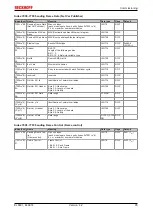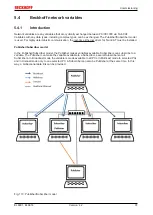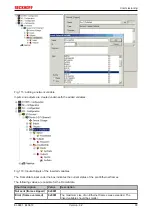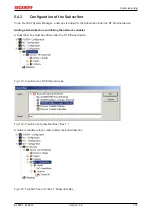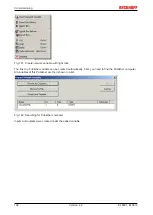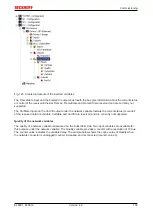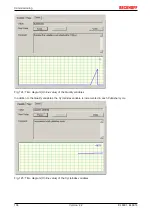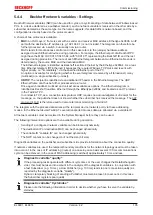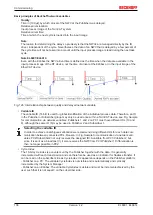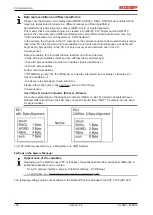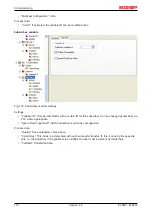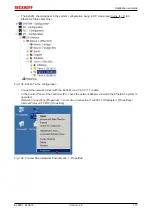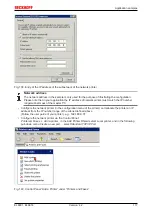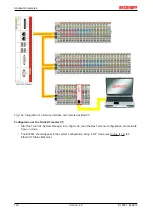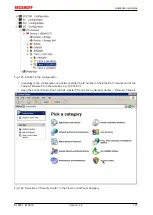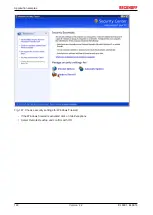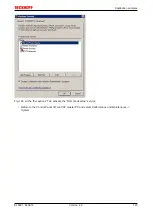
Commissioning
EL6601, EL6614
109
Version: 4.2
Publisher, Box
Fig. 129: Publisher RT Ethernet settings
RT Ethernet settings:
•
MAC-Broadcast:
Sent to all network devices, destination MAC FF:FF:FF:FF:FF:FF.
•
Multicast
: A destination MAC address becomes a multicast address if the first bit in the first byte of the
MAC (the so-called group bit) is set. With the Beckhoff ID "00 01 05" the default target address "01 01
05 04 00 00" is formed, as shown in Fig.
Publisher RT Ethernet settings
.
The MAC range 01:00:5E:00:00:00 to 01:00:5E:FF:FF:FF is intended for general multicast application,
with the first 3 bytes specified by the IEEE and the last 3 bytes derived from the lower part of the IP
address of the destination PC. The resulting destination MAC therefore never physically exists in the
network. Instead, the destination network card detects Ethernet frames formed in this way as multicast
frames sent to it, although the Ethernet port itself can have another, unique MAC address. Please refer
to the relevant literature for further rules relating to the formation of multicast MAC/IP addresses.
•
Unicast
: Either direct entry of the destination MAC or via the AMS Net ID of the destination device, e.g.
123.456.123.456.1.1, in which case this route must be entered in the local AMS router (right-click on
the TwinCAT icon in the taskbar --> Properties --> AMS router)
Use of broadcast and multicast
Network variables sent as broadcast or multicast at MAC or IP level can generate high network load
(depending on the cycle time), since they are multiplied into the whole connected network. This may
cause simple network devices such as printers to crash. With short cycle times all network traffic
may become blocked. We strongly recommend using unicast addressing, taking into account vari-
able identification, as described above.
Advanced Settings:
• Data exchange: The task cycle time * divider is the rhythm at which this network variable is sent. (not
for EL66xx).
• VLAN support: In conjunction with manageable switches the Ethernet frame parameterized here can
be assigned a fixed route via VLAN tagging (Virtual Local Area Network).

